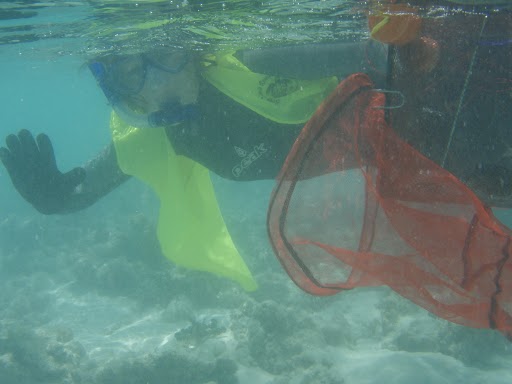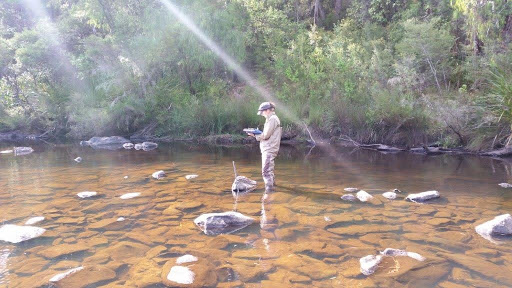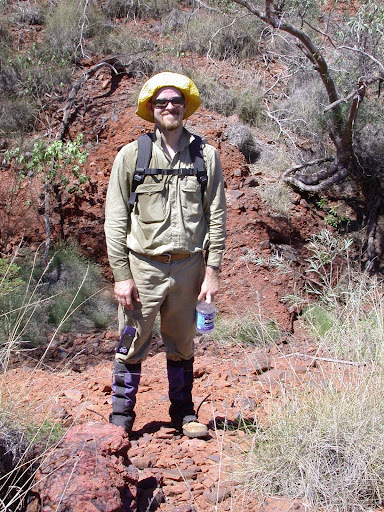It’s National Science Week here in Australia at the moment and as part of that we thought we’d talk to a few of our team who focus on science - our two Consulting Scientists, Mieke and Gill, and our founder, Piers - about what science has given them over their careers and what it means to them. Their responses - and photos! - highlight just how important it is to know how field work happens so that we can understand the data that is collected from it and help our clients manage that data in a sustainable manner.
Have a read of their responses below, and of course if you’d like to have a chat to us about field work, data collection, data management or just science, then feel free to contact us at enquiries@gaiaresources.com.au or start a conversation with us on LinkedIn, Facebook or Instagram.
Mieke
What does it mean to be a scientist? I would say it means that you have a thirst for knowledge, learning, and understanding. You love to build on what is known to explore what is unknown. You have many ideas that you want to test. Every success and every failure drives you further on the quest. This drive never goes away. Each new piece of evidence is integrated into the next set of ideas.
Having a background in science is obviously beneficial when working on projects that are for scientific initiatives and for those working with scientific data. It helps me understand what the client is working with and their objectives. However, the fundamentals of being a scientist - having innate curiosity and an analytical mind - also play a huge part in my role for any project. These qualities drive innovation for the client where we explore their unique assets and constraints to build something personalised for their needs.
National science week is a terrific way for scientists to share what is happening in science locally and globally to anyone, not just other scientists. On an individual level, it is an opportunity for hearing what other people are doing in your favourite areas or exploring themes that are not as familiar to you. It’s not just theoretical, most of the events have hands-on components to immerse yourself in. Beyond the individual experience, it is really fun to share and connect with friends and family in an inspiring environment. I have never met a scientist who does not love to share their passions and inviting in new or different ways of thinking.

Gill
I’ve always had a passion for landscapes and the environment, from a very early age. I was involved in environmental programs at school and University, where I studied Geography and focused on landscape processes and spatial sciences. Science for me is more about how it applies to these natural environments and to landscapes.
When I moved to Australia, I started working with the Environmental Protection Authority in Western Australia in the spatial area, and was also studying for a postgraduate diploma in Environmental Management. However, my dream job was being outside in welly boots, sampling rivers and streams. Thankfully, through the Department of Water I was able to end up in a job that was just that - I worked with a team to adapt the national framework for assessing river and wetland health to Western Australian waterways. This led to a consistent methodology and consistent data that was able to be amalgamated into a central “pot” and assessment done nationally.
This was the start of 11 years of amazing science-based work in the field, as well as in the office working on desktop spatial analysis. I then joined Gaia Resources and have worked in many similar projects amalgamating and structuring data across a range of environmental projects.

Science for me is about collecting the evidence to support protecting the natural environment and to underpin action to be taken. For me, it’s also been about following my passion and dreams, which I still get to do today.
Piers
Science and the scientific method has been part of my thinking since I was a kid. I grew up on a small farm for much of my childhood, and learned from my father about the importance of observing the natural environment, which he taught me through the vehicle of birdwatching.
I followed my nerdy passions in school towards computing, helping set up the first computer at my country primary school and quickly realising that this was something I could do and enjoy. From my early days of the Commodore 64 through to today, I still play a lot with computers and computer science seemed to be my bit, until later in high school when that wasn’t really an option I wanted to pursue - and I ended up (after a failed start in Landscape Architecture) majoring in Geography and spatial sciences at University.
After a number of years in the spatial sciences industry, I was fortunate enough to get a job with the team at Biota Environmental Sciences, where I spent a few years as a part time environmental scientist and part time data manager. Through that I found that this was what I loved - the mix of computer science and environment - so in the field I was usually the one carrying the GPS and working on taking notes, while feverishly learning whatever I could from whoever had me as their minion on that field trip.

After I finished a Masters in Business Administration, I put my two loves together into what has been (so far!) a 21 year journey at Gaia Resources.
For me, science is where I’m most comfortable. Whether it’s researching methods for some work we’re doing, or helping scientists to produce maps for their papers, or undertaking reviews and work with scientific organisations, science is where I can feel grounded into a way of thinking that enables inquiry, innovation and robust and repeatable outcomes. It’s given me a career that has been able to pivot and twist across a range of disciplines and enabled me to remain curious about the world around me throughout.
I am lucky enough to work with a wide range of scientists that inspire and energise me on a daily basis - getting to support scientists in their work is a great way of being able to contribute to making the world a better place.